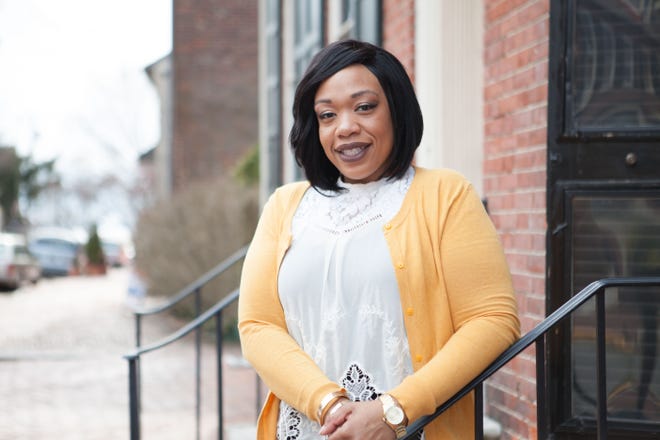
iBet uBet web content aggregator. Adding the entire web to your favor.
Link to original content: https://www.coons.senate.gov/news/op-eds/lets-honor-juneteenth-by-finally-taking-on-systemic-racism

Over the past month, millions of Americans have spoken out and marched in protest over the brutal killing of George Floyd at the hands of a Minneapolis police officer. In every state across our nation, Americans have joined together to not only demand an end to police brutality against Black and brown Americans, but to finally address systemic racism.
Today is Juneteenth, our nation’s annual day to mark and celebrate the end of slavery, but this year, we’re more conscious than ever that slavery’s legacy remains imprinted in our culture and our laws. This year, we’re reminded that racial discrimination and injustice still exist and still impact the lives of people of color in real and discernible ways.

We believe that our country is ready to finally address systemic racism, so policing is far from the only issue that we need to take on. We need to take bold action in Washington and Dover to improve police accountability and transparency, but we also have to open our eyes to the ways that structural racism and discrimination touch many issues we face.
Look no further than the economic and public health crises our country is still in the midst of. While no one has been spared the effects of the COVID-19 pandemic, it is increasingly clear that the pandemic’s significant health and economic impacts are disproportionately affecting communities of color. Let’s be clear: the virus doesn’t discriminate against people of color. Instead, the pandemic has simply shone a light on just how much discriminatory public policies have done to put communities of color at greater risk and weaken critical safety net programs for all Americans. From a health perspective, we’ve seen clearly that Americans of color are being infected by COVID-19 at a significantly higher rate than white Americans. At the same time, we’ve also seen that testing is less accessible for these communities, despite the fact that many essential workers, from grocery store clerks to frontline health care workers, are people of color.
The facts are similarly grave from an economic standpoint. While unemployment is high for Americans of every racial background, the unemployment rates for Black Americans and Latinos are even higher. Minority-owned small businesses have also received less aid from government programs, including the popular Paycheck Protection Program (PPP).
Over the years, our health system has made it difficult for communities of color to access the health care they deserve. Decade after decade, we’ve seen efforts to chip away at workers’ rights and, nearly every year, more cuts are proposed to education, community development, and job training programs. Housing policies have made it particularly difficult for families of color to achieve home ownership and establish and grow their wealth. All of that has combined to stack the odds against generations of underserved communities – often communities of color. Combine all of those policies over decades and it’s no wonder Black and brown communities are suffering worse than white communities during this pandemic.
That’s why we need to act – at the federal, state, and local levels – to ensure that the massive investments we’re making in our economy and our communities are also addressing inequality. With every law that we pass, we need to be clear-eyed about how communities of color in particular are specifically impacted.
From a public health standpoint, we need a nationwide focus on ensuring that communities of color and at-risk employees from a wide range of industries have access to free testing so that they can do their jobs safely and protect their families. Our state has made impressive progress in rapidly expanding testing so that we can reopen safely, and it’s critical that these efforts continue to reach the communities hardest hit by this pandemic. The COVID-19 Racial and Ethnic Disparities Task Force Act in Congress provides an important template for ensuring that our pandemic response efforts address inequality head on.
From an economic perspective, we also need to ensure that we’re not only passing major economic relief packages, but that we’re also doing the hard work of delivering those resources to the families, communities, and businesses who need them most. We can do that by extending enhanced unemployment and appropriating more funding for nutrition programs so those who are out of work through no fault of their own can still buy groceries and pay their bills. Congress also must provide robust relief to state and local governments in order to stave off mass layoffs of public sector workers, who are relatively more likely to be Black men and women.
Finally, we now know that the initial Paycheck Protection Program (PPP) benefited far too many big corporations and too few small businesses, including many in underserved communities. In response, we need to direct additional relief to minority-owned businesses by enabling the smallest, most vulnerable businesses to access a second forgivable PPP loan. We should also provide additional funding to Community Development Financial Institutions (CDFIs), including those in Wilmington, Claymont, Dover and Seaford that are uniquely positioned to target minority- and women-owned businesses. If these institutions are further empowered as part of the crisis response, they can prevent countless business closures across our state.
As our country begins a long overdue, nationwide conversation about the ways communities of color are treated by law enforcement, we must also look at the larger systems of structural racism that impact education, job prospects, housing, health care, and every other part of life for Americans of color.
If one thing is clear from this past month, it’s that every piece of public policy must be viewed in a different, new light. It’s not enough for our laws and our budgets to be race-neutral; we have to find ways to be anti-racist in Dover, Washington, and across the country. This Juneteenth, we pledge to do just that.
Chris Coons is a U.S. senator from Delaware. Melissa Minor-Brown is a state representative.